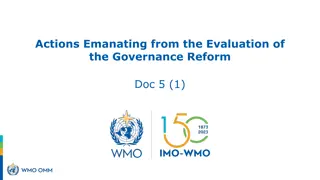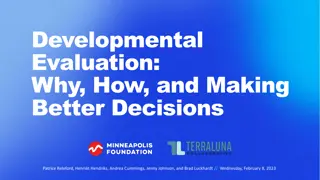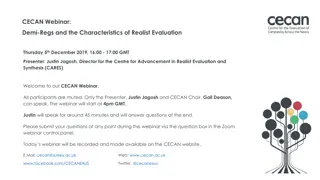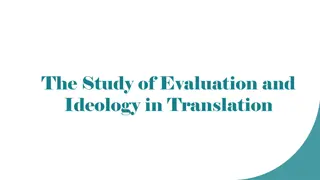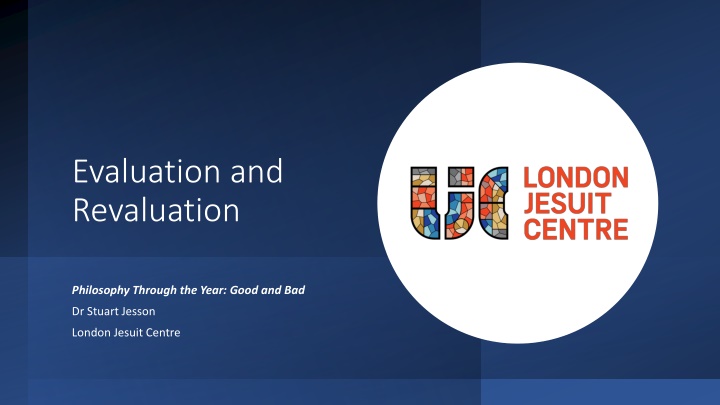
Evaluating Life and Goodness Philosophy: Insights and Reflections
Explore the complexities of evaluating life and moral goodness through philosophical perspectives, touching on concepts of good/bad, moral values, and the pursuit of eudaimonia for a meaningful existence. Delve into the nuances of ethical evaluation and the relationship between aesthetics and morality. Discover Aristotle's view on happiness and eudaemonia in the context of life assessment.
Download Presentation

Please find below an Image/Link to download the presentation.
The content on the website is provided AS IS for your information and personal use only. It may not be sold, licensed, or shared on other websites without obtaining consent from the author. If you encounter any issues during the download, it is possible that the publisher has removed the file from their server.
You are allowed to download the files provided on this website for personal or commercial use, subject to the condition that they are used lawfully. All files are the property of their respective owners.
The content on the website is provided AS IS for your information and personal use only. It may not be sold, licensed, or shared on other websites without obtaining consent from the author.
E N D
Presentation Transcript
Evaluation and Revaluation Philosophy Through the Year: Good and Bad Dr Stuart Jesson London Jesuit Centre
Goodness and badness In ordinary usage, the good/bad distinction relates to a number of other concepts, e.g.: Function ( this chair is very badly designed ) Skill/ability ( to be good at something; a good footballer/saxophone player) Perfection/fulfillment (a perfect circle; a perfect album, e.g. A Love Supreme) Beauty Does our understanding of moral goodness draw from these uses? Is it possible to understand ethical or moral goodness, or value, as distinct, or separate from these?
Goodness and badness Is moral goodness a distinct kind of goodness? On the one hand: Something can be good in a bad way, e.g. a well-made nuclear weapon; effective proganda; It is obvious that beautiful works of art can be made by morally flawed individuals; Aesthetic greatness or practical skill can be pursued at the expense of moral value (e.g. Gaughin, Hemingway);
Goodness and badness On the other hand: It seems natural to describe a particularly good people as living beautiful lives (Mother Teresa, Something beautiful for God ); We can understand some kinds of immoral behaviour as ugly, or a life like that of Jimmy Savile as being a failure . Could a human life be good in the fullest sense without being morally good? Could a human life be meaningful in the fullest sense without being morally good?
Eudamemonia: Evaluating life as a whole When should we judge whether our lives have turned out well ? Count no-one happy until the end is known
Aristotle: Evaluating life as a whole For Aristotle, happiness (eudaemonia) is not about the quality of our momentary experience, but is about our lives as a whole (one phrase to capture this is a life that turns out well see Spaemann 2000). Although this still leaves us with some questions: - Intense, momentary pleasures are often followed by suffering, or regret, or both so eudamonia cannotbe about these; - But even a person living life well, is still open to misfortune, and eudaemonia cannot be compatible with these; - The cultivation of virtue (essential to eudaemonia) depends on certain amount of luck; - (And even a dead person could still suffer misfortune in a sense e.g. if their children turned out to be failures, or brought shame on the family, etc.)
Aristotle: Eudaemonia Presumably, however, to say that happiness is the chief good seems a platitude, and a clearer account of what it is still desired. This might perhaps be given, if we could first ascertain the function of man. For just as for a fluteplayer, a sculptor, or an artist, and, in general, for all things that have a function or activity, the good and the 'well' is thought to reside in the function, so would it seem to be for man, if he has a function. Have the carpenter, then, and the tanner certain functions or activities, and has man none? Is he born without a function? Or as eye, hand, foot, and in general each of the parts evidently has a function, may one lay it down that man similarly has a function apart from all these? What then can this be?
Aristotle: Eudaemonia Life seems to be common even to plants, but we are seeking what is peculiar to man. Let us exclude, therefore, the life of nutrition and growth. Next there would be a life of perception, but it also seems to be common even to the horse, the ox, and every animal. There remains, then, an active life of the element that has a rational principle [. . .] Now if the function of man is an activity of soul which follows or implies a rational principle [. . .] if this is the case, and we state the function of man to be a certain kind of life, and this to be an activity or actions of the soul implying a rational principle, and the function of a good man to be the good and noble performance of these, and if any action is well performed when it is performed in accordance with the appropriate excellence: if this is the case, human good turns out to be activity of soul in accordance with virtue, and if there are more than one virtue, in accordance with the best and most complete.
Aristotle: Eudaemonia However, Aristotle admits that even to have the possibility of happiness, of reaching this goal, one requires a certain amount of good fortune: Yet evidently, as we said, [happiness] needs the external goods as well for it is impossible, or not easy, to do noble acts without the proper equipment. In many actions we use friends and riches and political power as instruments and there are some things the lack of which takes the lustre from happiness, as good birth, goodly children, beauty for the man who is very ugly in appearance or illborn or solitary and childless is not very likely to be happy, and perhaps a man would be still less likely if he had thoroughly bad children or friends or had lost good children or friends by death. As we said, then, happiness seems to need this sort of prosperity in addition for which reason some identify happiness with good fortune, though others identify it with virtue. So life turning out well is dependent on amoral factors
Aristotle: Eudaemonia For Aristotle, ethics is about understanding that aids us in living: Aristotle s ethical theory is meant to be a practical guide in the sense that he believes that the point of examining the nature of happiness is to aid our own pursuit of it. (Lear 2004: 8) - This means that the enquiry about happiness is an enquiry about what a human is, because each kind of being seems to have its own proper function . - So in order to understand the question what is good for a human? we first have to ask the question is: what isa human? - For Aristotle, humans are rational animals, which means that the human good is found in intellectual contemplation. This is the end that is good in itself that we find our happiness in.
Wittgenstein on absolute value In fact the word good in the relative sense simply means coming up to a certain predetermined standard. Thus when we say that this man is a good pianist we mean that he can play pieces of a certain degree of difficulty with a certain degree of dexterity. And similarly if I say that it is important for me not to catch cold I mean that catching a cold produces certain describable disturbances in my life and if I say that this is the right road I mean that it's the right road relative to a certain goal. Used in this way these expressions don't present any difficult or deep problems. But this is not how Ethics uses them. Supposing that I could play tennis and one of you saw me playing and said "Well, you play pretty badly" and suppose I answered "I know, I'm playing badly but I don't want to play any better," all the other man could say would be "Ah then that's all right." But suppose I had told one of you a preposterous lie and he came up to me and said "You're behaving like a beast" and then I were to say "I know I behave badly, but then I don't want to behave any better," could he then say "Ah, then that's all right"? Certainly not; he would say "Well, you ought to want to behave better." Here you have an absolute judgment of value, whereas the first instance was one of a relative judgment.
Wittgenstein on absolute value Now what I wish to contend is that, although all judgments of relative value can be shown to be mere statements of facts, no statement of fact can ever be, or imply, a judgment of absolute value. Let me explain this: Suppose one of you were an omniscient person and therefore knew all the movements of all the bodies in the world dead or alive and that he also knew all the states of mind of all human beings that ever lived, and suppose this man wrote all he knew in a big book, then this book would contain the whole description of the world; and what I want to say is, that this book would contain nothing that we would call an ethical judgment or anything that would logically imply such a judgment. It would of course contain all relative judgments of value and all true scientific propositions and in fact all true propositions that can be made. But all the facts described would, as it were, stand on the same level and in the same way all propositions stand on the same level. There are no propositions which, in any absolute sense, are sublime, important, or trivial. [. . .] what I mean is that a state of mind, so far as we mean by that a fact which we can describe, is in no ethical sense good or bad.
Wittgenstein on absolute value If for instance in our world-book we read the description of a murder with all its details physical and psychological, the mere description of these facts will contain nothing which we could call an ethical proposition. The murder will be on exactly the same level as any other event, for instance the falling of a stone. Certainly the reading of this description might cause us pain or rage or any other emotion, or we might read about the pain or rage caused by this murder in other people when they heard of it, but there will simply be facts, facts, and facts but no Ethics. And now I must say that if I contemplate what Ethics really would have to be if there were such a science, this result seems to me quite obvious. It seems to me obvious that nothing we could ever think or say should be the thing. That we cannot write a scientific book, the subject matter of which could be intrinsically sublime and above all other subject matters, I can only describe my feeling by the metaphor, that, if a man could write a book on Ethics which really was a book on Ethics, this book would, with an explosion, destroy all the other books in the world. Our words used as we use them in science, are vessels capable only of containing and conveying meaning and sense, natural meaning and sense. Ethics, if it is anything, is supernatural and our words will only express facts; as a teacup will only hold a teacup full of water and if I were to pour out a gallon over it. (Lecture on ethics)
Wittgenstein on absolute value My whole tendency and I believe the tendency of all men who ever tried to write or talk Ethics or Religion was to run against the boundaries of language. This running against the walls of our cage is perfectly, absolutely hopeless. Ethics so far as it springs from the desire to say something about the ultimate meaning of life, the absolute good, the absolute valuable, can be no science. What it says does not add to our knowledge in any sense. But it is a document of a tendency in the human mind which I personally cannot help respecting deeply and I would not for my life ridicule it. (Lecture on Ethics)
Gaita: Meaning and the lessons of remorse Australian philosopher offers a reflection on the way that morality goes along with the sense of depth of understanding more about what it means to live and act. Suppose someone who acknowledged that his sexual morality cheapened our understanding of the meaning sexuality has in human life, but who then said that did not matter because morality is one thing, the meaning of things another. Or, someone who said I know it is sentimental and irredeemably banal, but there it is; it is my morality. The requirement that morality must at least intelligibly claim to deepen rather than cheapen our understanding of human life entails that it must offer a deepened perspective on the good and ill we suffer. (Gaita 2004: 38)
Gaita: Meaning and the lessons of remorse When we ask what makes a principle a moral principle, a rule a moral rule, an obligation a moral obligation then I think we should seek at least some part of the answer in the kind of elaboration we give when we express most seriously our sense of what it means to wrong someone. Nowhere is that sense more sober than in lucid remorse. My God what have I done? How could I have done it? Those are the typical accents of remorse.
Gaita: Meaning and the lessons of remorse They do not (I argue) express an emotional reaction to what one has done, but a pained, bewildered or perhaps better, incredulous realisation of the full meaning of what one has done. But now, if one puts in the mouth of the remorseful person many of the philosophical accounts of what makes an obligation a moral obligation or a principle a moral principle, of the nature of morality and of its authority, we get parody. (Gaita 2004: xxi)
Gaita: The lessons of remorse My God what I have done? I have violated the social compact, agreed behind a veil of ignorance. My God what have I done? I have ruined my best chances of flourishing. My God what have I done? I have violated rational nature in another. My God what have I done? I have diminished the stock of happiness. My God what have I done? I have violated my freely chosen principles. (Gaita 2004: xxi) So perhaps notable modern theories (e.g. utilitarianism) cannot hope to do justice to the depth we seem to encounter in moral life, because they tend to separate morality from meaning.
Weil: Paradoxical revaluation Weil points to a fundamental paradox in the idea of philosophical reflection on value: We cannot notvalue ( Everyone orients his thought about action towards some good, and no-one can do otherwise ) Value are affirmed unconditionally ( At the moment when it directs our actions, our system of values is not accepted with conditions, or provisionally or reflectively; it is purely and simply accepted. ) But we have to question our values! ( Knowing how to judge between values is for everyone the supreme necessity ) So: at the centre of human life is a contradiction But how can we even ask the question of the value of our values ? (Nietzsche) Enquiry/reflection itself involves effort, but effort is always in view of some good This question depends on detachment; detachment involves an effort; effort implies a value; therefore it is only possible if we regard this detachment itself as the supreme value Genuine moral philosophy (philosophical inquiry into the good) is a spiritual activity, turning with one s whole soul towards the good involves refusing to love the things that pass
Further reading GAITA, R. (2005). Good and Evil: An Absolute Conception. London, Routledge. MIDGLEY, M. (2013). The origin of ethics in A Companion to Ethics, ed. Singer, P. Wiley. SPAEMANN, R. (2000). Happiness and Benevolence, trans Jeremiah Aldberg, S. J. Edinburgh, T & T Clark. WEIL, S. (2015). Some reflections on the concept of value in Late Philosophical Writings, ed. Springsted, O, trans Springsted, O and Schmidt, L. Indiana, University of Notre Dame Press. WILLIAMS, B. (2014). Ethics and the Limits of Philosophy. London, Routledge.


